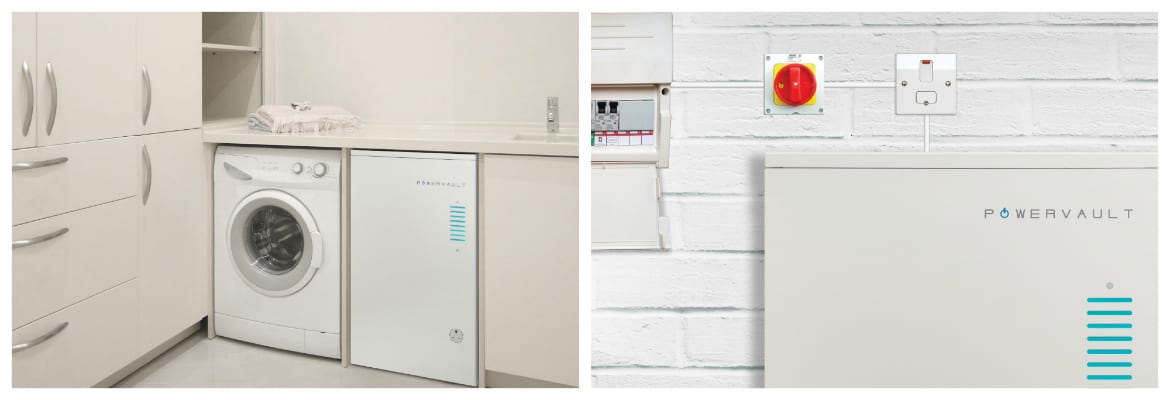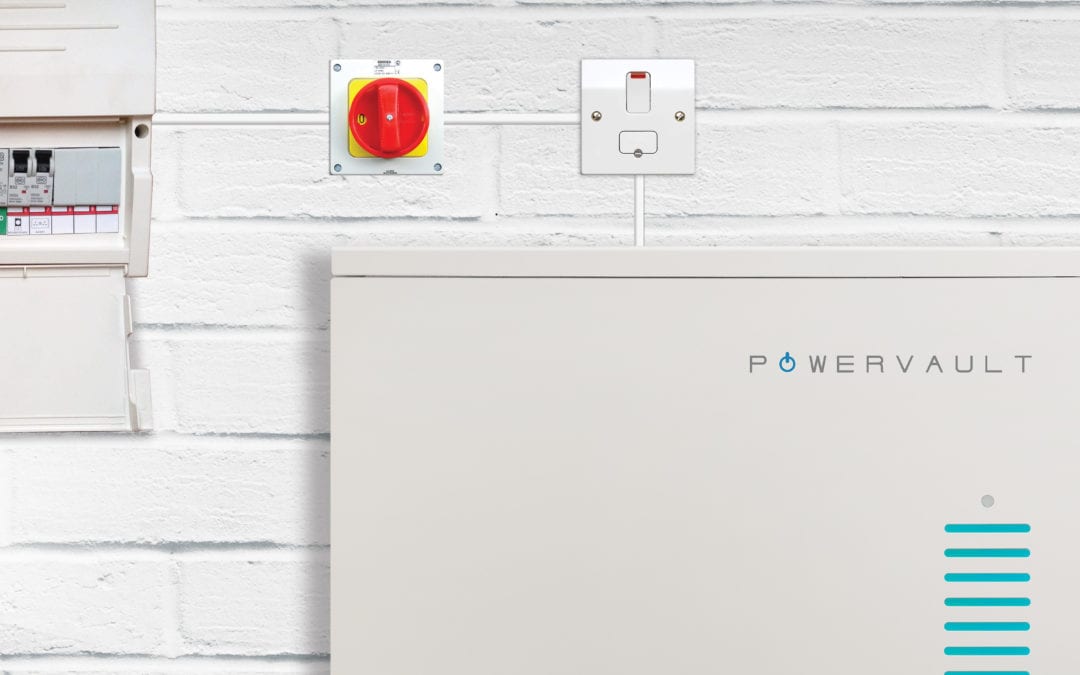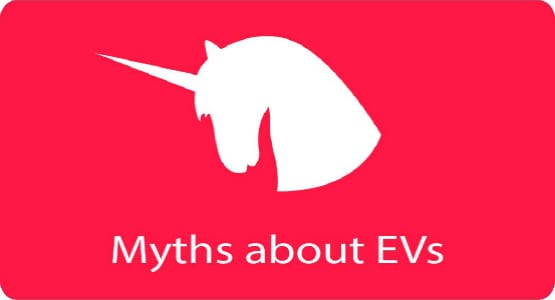Renault and Powervault, the UK-based energy storage system manufacturer, announced a partnership to re-use electric vehicle (EV) batteries in home energy storage units. The saving to Powervault will make its storage system 30% cheaper, allowing its home storage system to become a financially viable solution to households across the UK.
Electric vehicle batteries are typically used until it depletes 20% of its capacity, after which it needs to be replaced, leaving a healthy portion of battery left for static battery applications, which are less demanding on the technology than the harsher requirements of transport applications. Typically an EVs battery can handle between 2,000 and 5,000 cycles or more depending on which supplier and what cell chemistry is used in the battery. BAIC models, for instance, using a LiFePO4 (Lithium Phosphate) based battery, guarantee 2000 cycles while the first Chevrolet Volt’s listed 5000 cycles. The Chevrolet Volt, however, electronically limits that only 65% of the battery is made available to the car to protect the battery, so to compare apples to apples, it would be better to compare throughput as appose to cycles.
Renault has already sold over 100,000 electric vehicles between its Zoe, Twizy, Kangoo and Fluence models, of which 25,000 are older than four years. Renault’s EV business model includes leasing its batteries to customers. Extending the usage of its batteries through a second-life application will provide Renault with a better return on investment and hopefully in future bring down the price of batteries faster.
According to the press release, Powervault will place 50 units on trail at existing customers who already have the company’s solar panels installed. The trial will explore the technical performance of second life batteries as well as customer reaction to home energy storage to help develop a roll-out strategy for the mass-market. The trial will be run with eligible customers of M&S Energy, plus social housing tenants and schools in the South East.
The relatively high cost of Home Storage Systems has until recently made little financial sense, with payback periods from savings overshooting the useful life of the system. Bringing system cost down to an acceptable payback of between five and seven years is seen as the holy grail for system manufacturers and homeowners.
Other EV manufacturers have already pursued business plans for second life batteries in Battery Home Systems with or without Solar. In June 2016 Nissan and Eaton installed an Energy Storage Solution in France, created from “second life” Nissan Leaf batteries. Nissan installed the Energy Storage Solution at WEBaxys, a data center. In the same month, BMW announced that it would follow Daimler, Nissan, and Tesla in creating second life energy storage systems for residential and commercial use. Second life battery systems would not have the same warranties as new systems.
Extending the life of EV batteries will also result in lower recycling related cost and overall optimize the use of the battery. Second Life applications and applications such as Vehicle-to-Grid (V2G), where an EV owner sells power back to the grid, makes electric vehicles much more appealing and blows in the face of the technologies detractors.

Interested in learning more about Chinese electric vehicles? Download our fun and easy app below, flick the switch to your preferred option and swipe left the models you don’t like, right the ones you do, enter the chat rooms and share your thoughts with the community.








